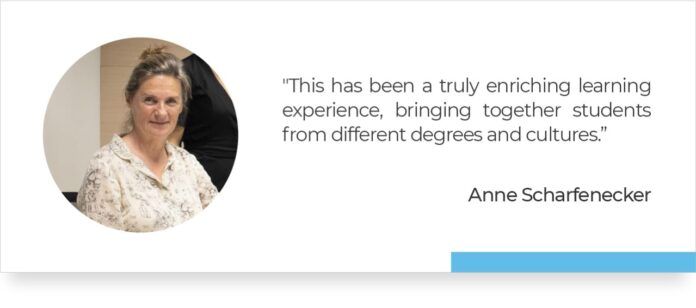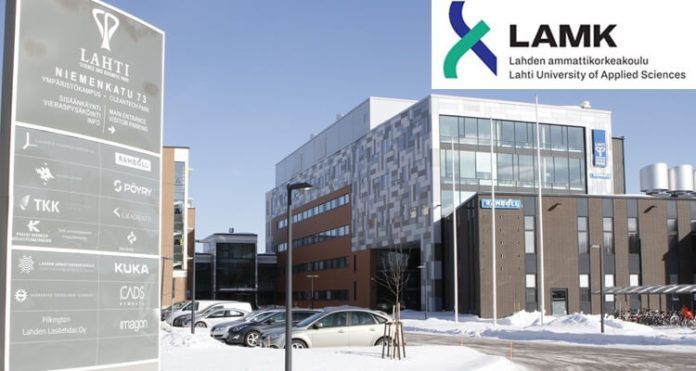With professors such as Anne Scharfenecker and Ruzan Galstyan, the internationalization of our Teaching studies is assured. Two COIL modules have been launched this academic year, in addition to a transversal and collective project with the degree in Nursing. This is internationalization and collaborative work in its purest form.

COIL is an acronym for Collaborative Online International Learning and its goal is to develop training modules with other international universities. And, thanks to the use of new technologies (WhatsApp, Skype, Telegram…), it is possible to work simultaneously with students from other countries. On this occasion, our students have contacted with their Finnish peers to discuss topics related to Food and Drinks, Traveling and Hobbies.
A unique experience and a fantastic way to learn while travelling!
Ruzan, what exactly has been the objective of this COIL module that you have implemented in our degree?
We have designed the second project between the Faculty of Teaching with students who aim at teaching English and are studying at the CEU of Castellón and the LAB University of Applied Sciences. The objective is twofold: on the one hand, to provide a genuine environment where the participants can function naturally in English and, on the other hand, improve their intrapersonal skills.
My colleague Anne Sharfenecker and I are convinced that our students will improve their language skills if they practise the language with a native speaker or with someone with a higher level. COIL projects are a way to motivate students to improve their English from the second year of their degree in Education until the end of the specialization.
«ONLINE LEARNING AND TEACHING HAS JUST BEGUN. WE STILL HAVE A LOT TO LEARN. »
It is true that, at the beginning of the project, the participants did not feel very confident but as it progressed, their attitude changed. We have brought the Erasmus+ experience to our classes through COIL and our students have discovered the advantages that this entails.
In this initiative you have been working with a university in Finland. The educational system of the country has always been a benchmark of success, what factors do you think have made it a case study worldwide?
Indeed, Finland is a world reference country in terms of its educational system. We plan to design and implement future projects with the Lahti University of Applied Sciences to exchange opinions and methodological tools. This will allow us to obtain more data regarding learning outcomes.
Our Finnish colleagues have seen this COIL project as something very innovative from the beginning and have informed us that they are going to publish an article about it.
Was there previously a relationship with the LAB University of Applied Sciences? Was the COIL experience useful to strengthen the ties between both institutions?
One of the project designers has visited the LAB University of Applied Sciences for four years as a visiting professor. The COIL project has opened a door to establish another level of collaboration not only between professors but also between the institutions themselves.

This is not the first COIL module that you implement in Castellón, you already have experience with Russian universities and also with an OSCE project in Health Sciences…
That is right. We are designing COIL projects in the degrees of Medicine and Nursing in Castellón, in the 2nd, 3rd and 4th year of Teaching with a specialization in English and with the students of the language service.
As for the future of education, does it go through the search for new innovative formulas in teaching? Is telematic teaching going to be a more feasible reality in the coming years?
Reality has shown that science fiction becomes eventually true. Professors have had to change and adapt the way they teach classes overnight. Online learning and teaching has just begun and there is still much to learn. These COIL projects will help us discover ways to improve online teaching.








